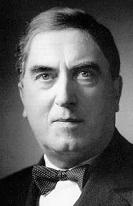Concert Review by Carol Mounter
A warm welcome awaited the Hailsham Choral Society at their concert at St Saviour’s Church, Eastbourne, on November 15th. The Choir has gained a very good reputation over the years and this concert did not disappoint, albeit that it was the most ambitious content that I have, as yet, experienced.
Opening the evening was Haydn’s Little Organ Mass. This miniature Mass was written for the Brothers of Mercy, whose chapel in the German town of Eisenstadt boasted a very fine, small organ. Written in the Missa Brevis style, the lengthier parts of the texts are telescoped, shortening the movements. There is one solo in the Mass, the Benedictus, sung by soprano Edie Behr..more of whom later.
The choir, under the sure expertise of Conductor and Music Director, Jozik Kotz, performed this and the other works of the evening, with sensitivity and a good use of dynamics. I am always struck by the manner in which Jozik Kotz manages to coax warmth and accuracy from his singers. The small orchestra, (strings only for the Haydn, plus organ, with excellent playing from Colin Hughes) were a delight to the ear, under the leadership of Jonathan Truscott.

Haydn was followed by Bach’s Jesu meine Freude, eleven motets, the longest and most musically complex of Bach’s motets, comprising of a German hymn setting and biblical texts from St Paul’s epistle to the Romans; and it addresses Jesus as a source of joy and support against enemies and the vanity of life. Movement 4 featured a semi chorus of two sopranos and an alto, movement 8 alto, tenor and bass and movement 9 two sopranos alto and bass. Too many to name, but all sung with authority. The piece consists of several very complex entries, which presented some difficulty for the Choir, but the whole was delightful and well received, as was the Lobet den Herrn, a setting of Psalm 117.
Finally, a real treat, the beautiful Solemn Vespers, by Mozart. This melodious setting of six evening prayers delivers some of the loveliest music in the sacred genre and was beautifully delivered by the Choir, with the solos taken by Edie Behr...remember this name..her rendition of Laudate Dominus was one of the best I have heard, reminding me of the acclaimed Dutch soprano, Elly Ameling. This young woman stole the evening, with a silky voice, clear as a mountain stream. The Vespers were a joy to the listener, and the orchestral accompaniment, with added brass and keyboard, played by William Hancox and continuo by Colin Highes, all added up to another delightful evening from this talented Choir. A resounding Well Done!

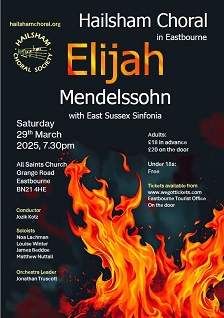
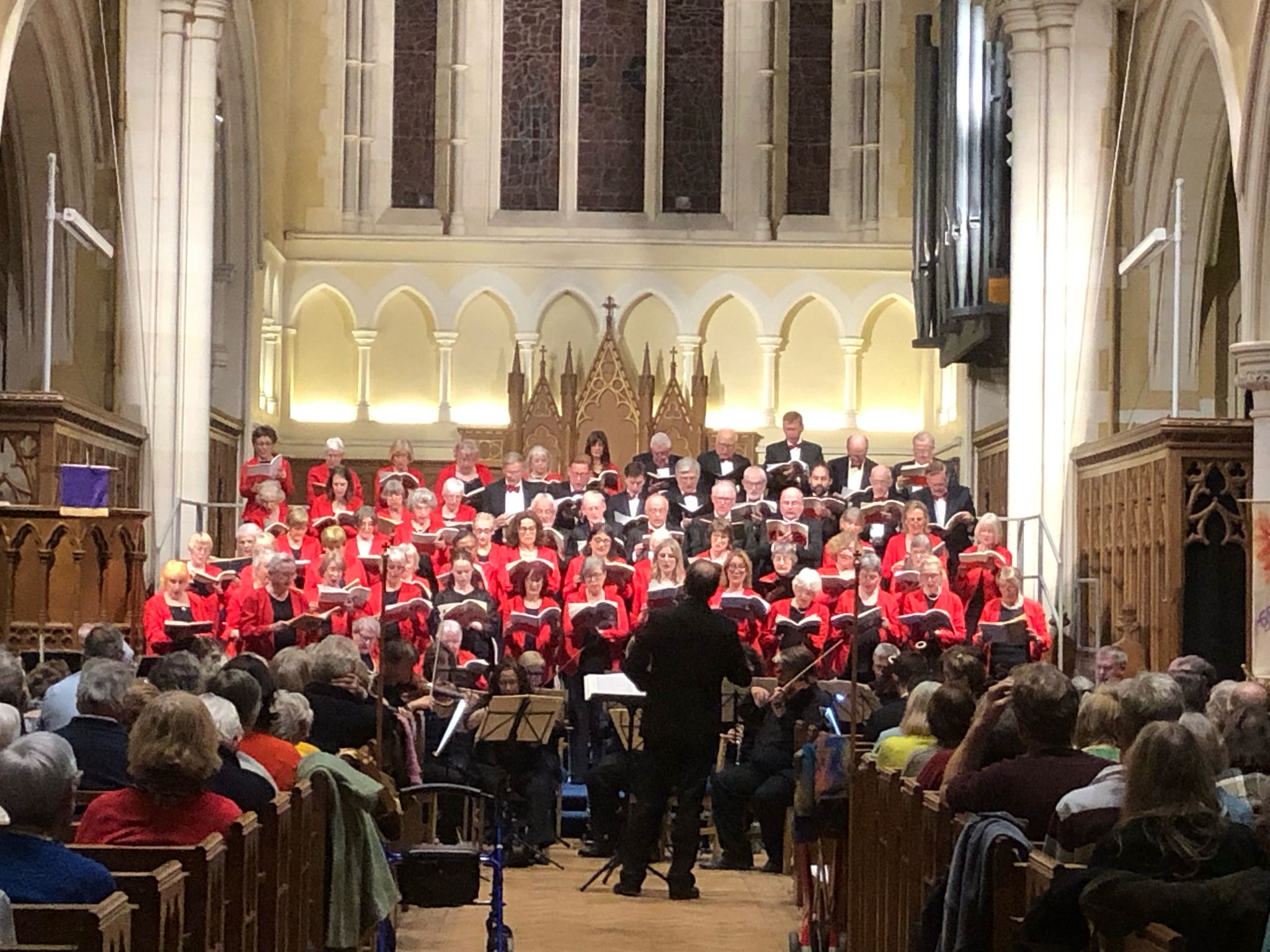
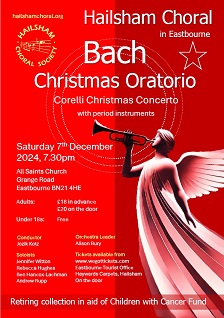
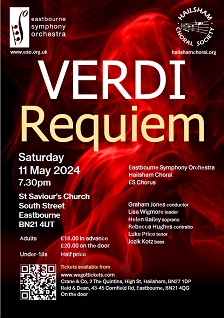
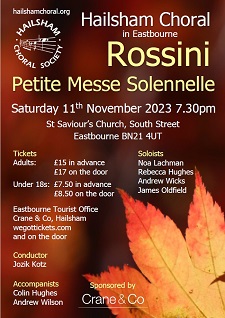
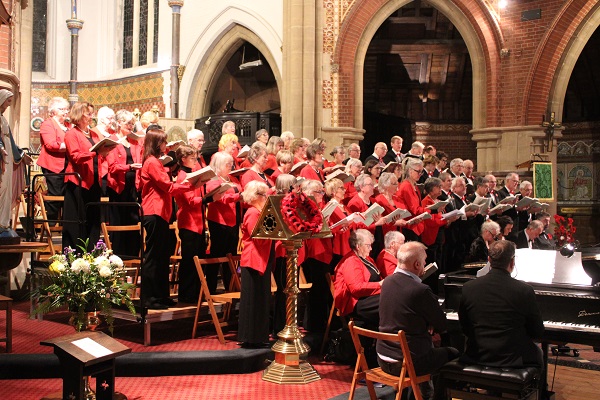
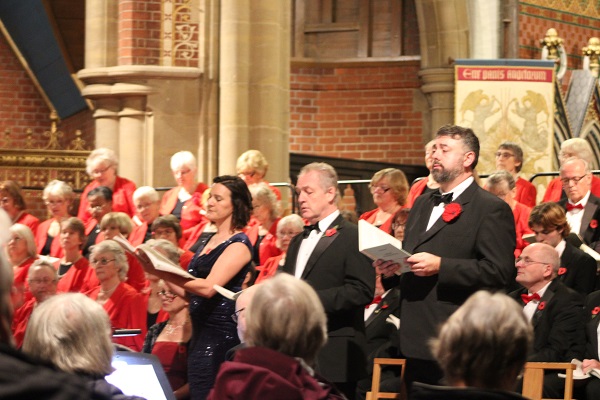
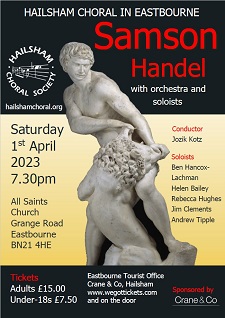
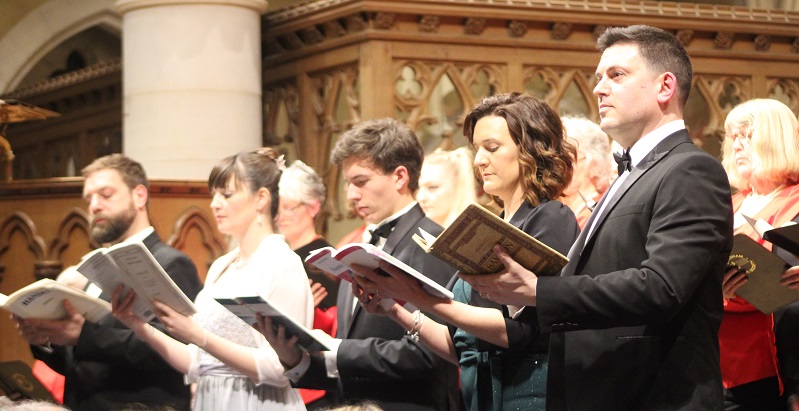
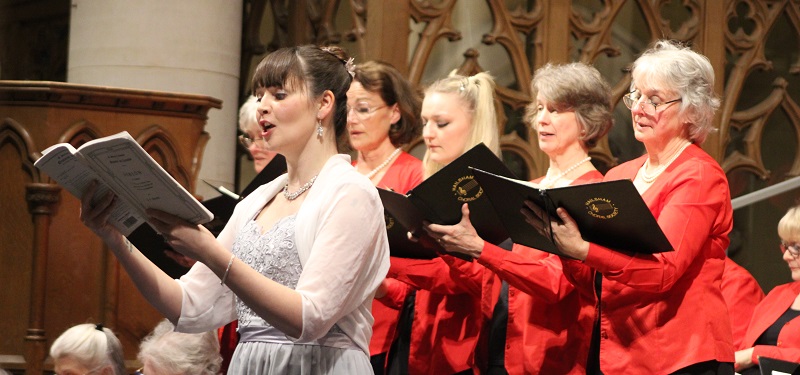
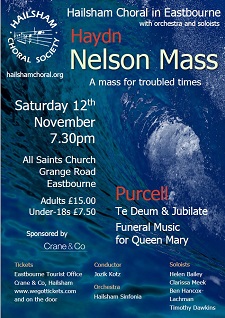
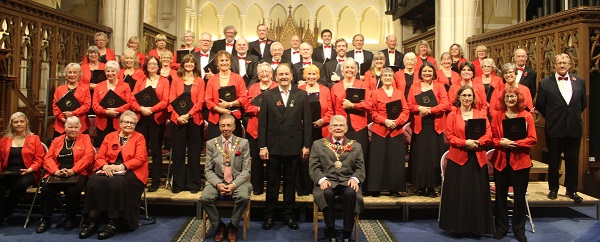
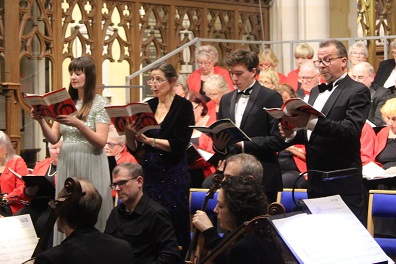
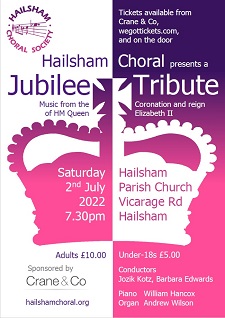
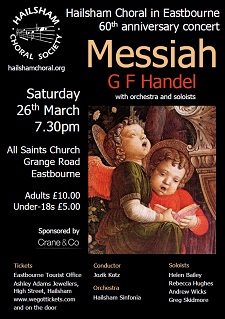
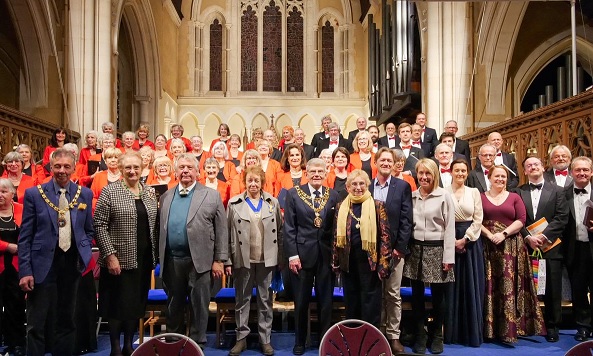
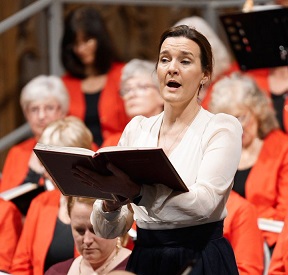 But on the day of the concert itself covid struck again. Jozik had to find a replacement soprano (the excellent Lisa Swayne) as well as two members of the orchestra. Despite all this
the conductor, choir, orchestra and soloists should be proud of the spirited and involving performance which they gave. The baritone Greg Skidmore was new to the audience but Rebecca Hughes
and Andrew Mackenzie Wicks are both well known local singers.
But on the day of the concert itself covid struck again. Jozik had to find a replacement soprano (the excellent Lisa Swayne) as well as two members of the orchestra. Despite all this
the conductor, choir, orchestra and soloists should be proud of the spirited and involving performance which they gave. The baritone Greg Skidmore was new to the audience but Rebecca Hughes
and Andrew Mackenzie Wicks are both well known local singers.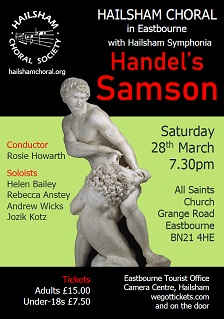
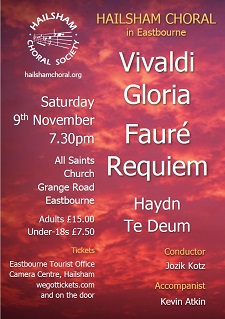
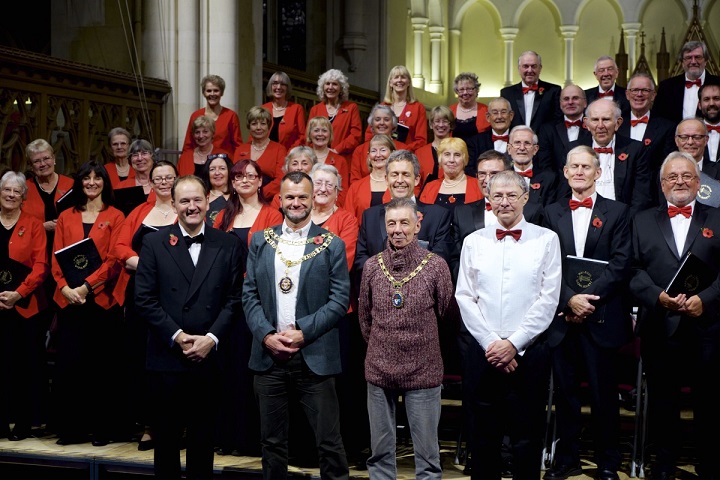
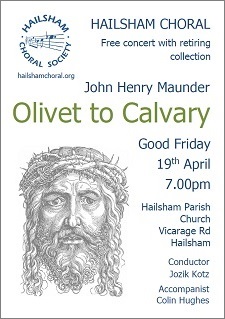
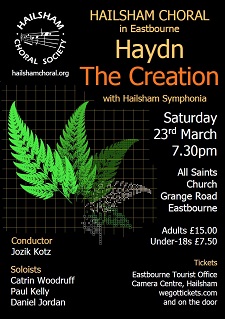
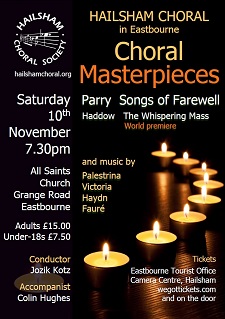
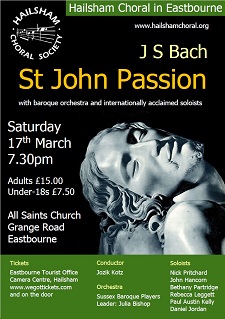
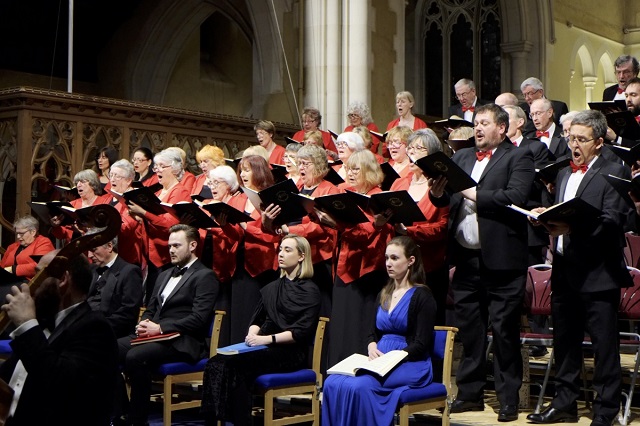
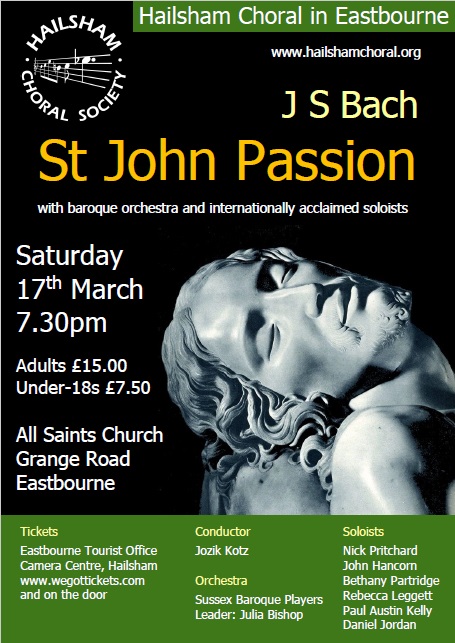 Seldom have I been so impressed with the overall standard of solo singing. (And I speak as one who has
written and presented some fifty programmes about great singers on Radio Two.) The crucial performance of
Jesus, for example, found John Hancorn stepping from his usual role as conductor/director, and thus reminding
us just what a fine baritone he is. Equally in command of his part was baritone Daniel Jordan, whose day-job
is Director of Music at Eastbourne College. Mezzo-soprano Rebecca Leggett is already well established having
won the Elisabeth Schumann Lieder Competition in 2016, and it was thrilling to see and hear a fine career blossoming
before one’s eyes and ears.
Seldom have I been so impressed with the overall standard of solo singing. (And I speak as one who has
written and presented some fifty programmes about great singers on Radio Two.) The crucial performance of
Jesus, for example, found John Hancorn stepping from his usual role as conductor/director, and thus reminding
us just what a fine baritone he is. Equally in command of his part was baritone Daniel Jordan, whose day-job
is Director of Music at Eastbourne College. Mezzo-soprano Rebecca Leggett is already well established having
won the Elisabeth Schumann Lieder Competition in 2016, and it was thrilling to see and hear a fine career blossoming
before one’s eyes and ears.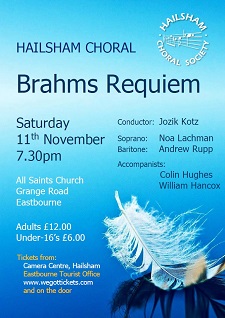
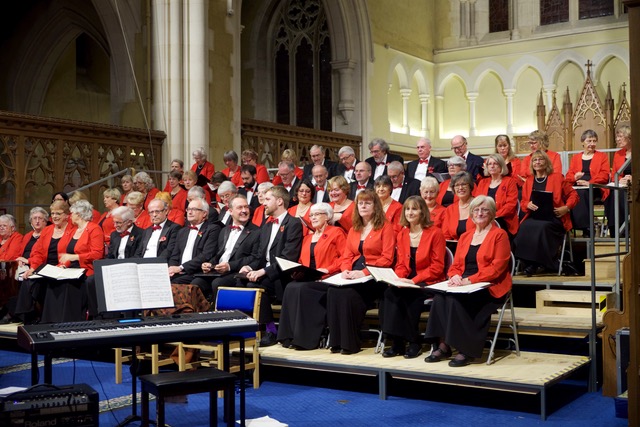
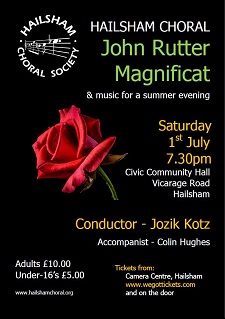
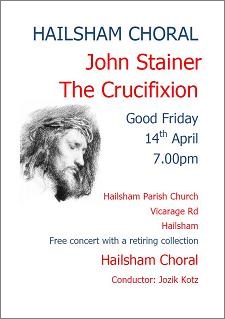
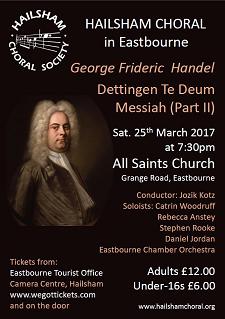
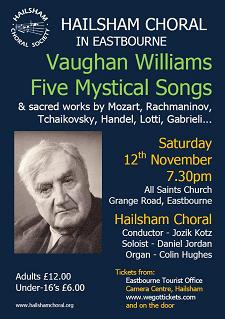
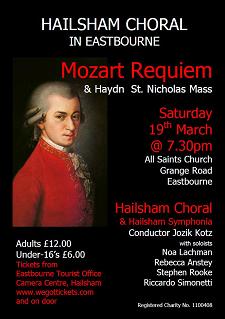
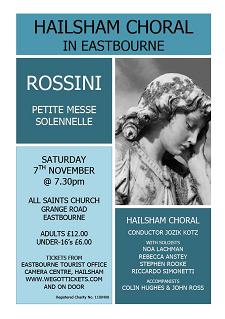
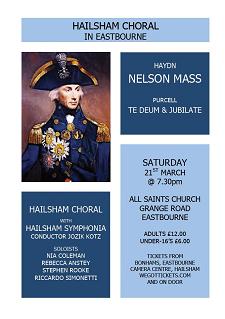
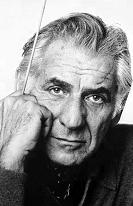
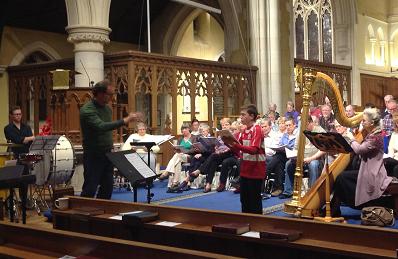 Ben Hancox-Lachman joined Nia as soloist in Bernstein’s Chichester Psalms. He is just thirteen, the son of pianist William Hancox and soprano Noa Lachman. Soon he will face the moment when his present liquid treble will “break”, but his musically-gifted parents will give him sound advice. In the unlikely event of his singing voice “vanishing” he is already no mean cellist!
Ben Hancox-Lachman joined Nia as soloist in Bernstein’s Chichester Psalms. He is just thirteen, the son of pianist William Hancox and soprano Noa Lachman. Soon he will face the moment when his present liquid treble will “break”, but his musically-gifted parents will give him sound advice. In the unlikely event of his singing voice “vanishing” he is already no mean cellist!